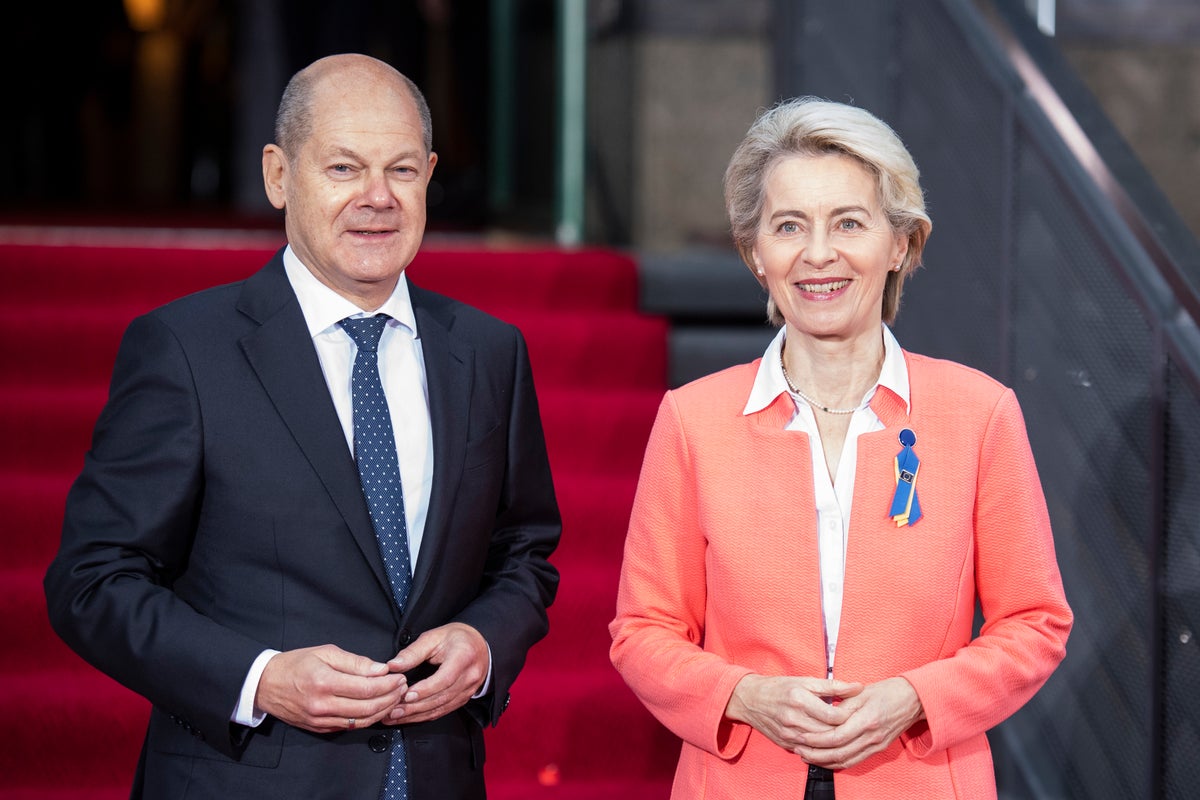
German and European Union leaders gathered experts Tuesday to start work on what Germany's chancellor described as a “new Marshall Plan” for the rebuilding of Ukraine.
The Marshall Plan was a U.S.-sponsored initiative that helped revive western European economies after World War II.
A one-day conference in Berlin was convened to discuss “how to ensure and how to sustain the financing of the recovery, reconstruction and modernization of Ukraine for years and decades to come,” German Chancellor Olaf Scholz said.
Scholz, who co-hosted the meeting with European Commission President Ursula von der Leyen, said he’s looking at “nothing less than creating a new Marshall Plan for the 21st century -- a generational task that must begin now.”
Von der Leyen said the World Bank puts the cost of damage to Ukraine so far at 350 billion euros ($345 billion). The EU decided in June to make Ukraine a candidate to join the bloc, and needs “to firmly embed Ukraine's reconstruction efforts as part of its path toward the European Union,” she said.
In addition to longer-term help, “Ukraine needs fast rehabilitation right now as we speak” as Russia targets Ukrainian electricity and other infrastructure ahead of the onset of the winter, von der Leyen said. She called those “pure acts of terror.”
Ukrainian President Volodymyr Zelenskyy emphasized that point in a video address from Kyiv. He told the Berlin conference participantsthat Ukraine has a $17 billion “fast recovery” plan to repair damage to hospitals, schools, transportation and energy infrastructure, and other structures.
“As of now, we haven’t received a single cent for the implementation of the fast recovery plan,” he said, speaking through an interpreter.
Scholz underlined Germany's commitment to keep supplying Ukraine with weapons, including air-defense systems, as long as they are needed.
“The best reconstruction is the reconstruction that does not have to happen at all because Ukrainian cities and power stations are protected from Russian bombs, drones and missiles,” he said.
“We do not yet know when this war will end, but end it will,” the German leader said. “From our own historical experience, we also know that reconstruction is always possible and that it is never too soon to tackle this task.”
Scholz and von der Leyen invited the leaders of Poland and Switzerland, the International Monetary Fund, the Organization for Economic Cooperation and Development, the European Investment Bank, the European Bank for Reconstruction and Development, the U.N. Development Program and others to Tuesday's meeting. Germany currently chairs the Group of Seven industrial powers.
“We have no time to waste. The scale of destruction is staggering,” von der Leyen said. “We need all hands on deck — the G-7, the European Union, Europe; strong partners like the United States, Canada, Japan, the U.K., South Korea, Australia, New Zealand and many, many more.”
____
Follow AP’s coverage of the war in Ukraine: https://apnews.com/hub/russia-ukraine







